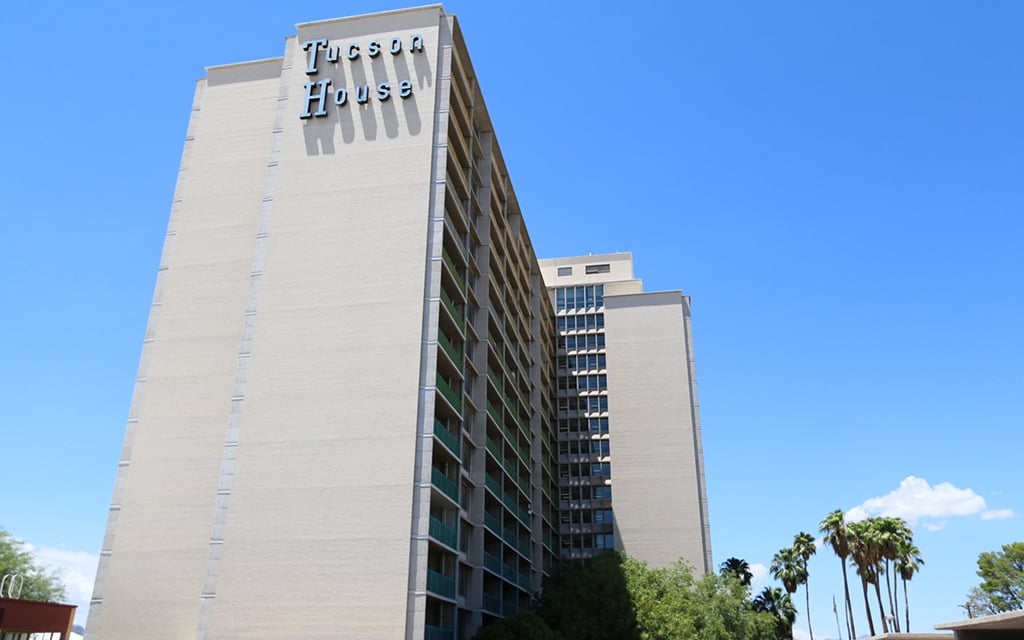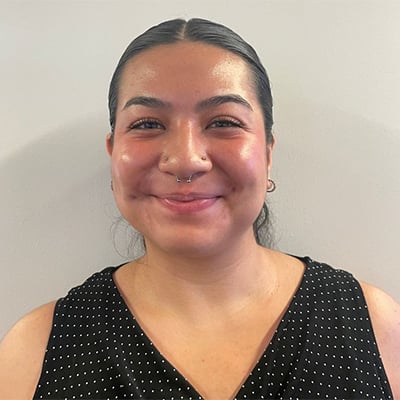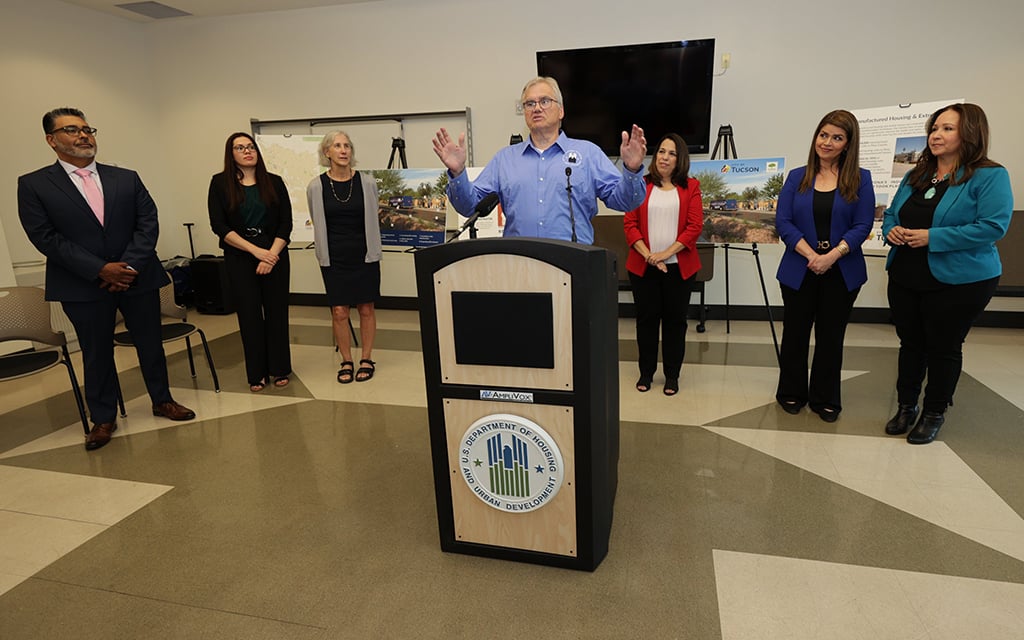WASHINGTON – On June 13, the federal government’s top official for public housing appeared with Tucson’s mayor at the Martin Luther King Apartments and announced emergency relief aimed at making it “as easy as possible” to help residents of public housing “afford air conditioning.”
The new program is meant to make it easier for local housing agencies to subsidize utility bills during extreme heat – and highs have topped 110 degrees in Tucson during the current heat wave.
But housing authorities in Arizona’s biggest cities haven’t rushed to implement the program. The Phoenix Housing Department has 2,126 tenants.
And in Tucson – where the emergency aid was unveiled – officials say tenants won’t see any of the aid this year, pending public hearings and other bureaucratic hurdles that federal officials say are unnecessary.
“I don’t anticipate we’ll be able to implement this change this summer,” said Terry Galligan, deputy director of the Tucson Housing and Community Development Department.
Galligan said his agency needs to review each resident’s utility bills before disbursing any federal funds and also would need to hold a public hearing and get approval from its board of commissioners. The normal process requires the housing authority to solicit public comments 45 days before a hearing.
All of that will hopefully be done in time for summer 2025, he said.
On June 13, 2024, HUD held an event in @cityoftucson at MLK apts, addressing extreme heat in public housing! @HUDgov Richard Monocchio, joined by Mayor @TucsonRomero, discussed new guidance on cooling technologies and utility relief for residents. #HUD #PublicHousing pic.twitter.com/SIt8IABpOf
— HUD Pacific (@HUDPacific) June 13, 2024
The delayed rollout doesn’t jibe with the urgency expressed by the Biden administration, whose new guidelines were written so local housing agencies can provide relief right away.
“Home should be a place of comfort, and nobody should have to risk heat-related illness residing in their own home,” said Richard Monocchio, the principal deputy assistant secretary of Public and Indian Housing at the Department of Housing and Urban Development, in a press release announcing the guidelines.
Pima County, which includes Tucson, had 176 heat-related deaths in 2023, more than half during July, according to the county medical examiner. The forecast for July 2024 is equally brutal: highs in triple digits every day until the 14th, when it dips to a balmy 97 degrees.
In Maricopa County, which includes Phoenix, 645 people died from heat-related illness in 2023, according to the county Department of Public Health.
More than 70% of those deaths occurred on the 42 days with an excessive heat warning. And 156 of the deaths occurred indoors. An A/C unit was present in 88% of those deaths but in seven out of eight cases, it wasn’t functioning. In the rest, it wasn’t on or there was no electricity.
“It’s actually a necessity, not a luxury, to have access to cooling,” Emily Haeckel, a policy adviser for climate resilience and sustainable development at HUD, said in an interview.
Turning on the A/C may mean comfort or even the difference between survival and death. But it’s also a costly option. And officials say too many people choose not to because they can’t afford the bills.
People with lower incomes are at a higher risk because they have less access to indoor cooling, according to the Centers for Disease Control and Prevention.
“The need for public housing residents to access necessary cooling systems is vital and we are assertively taking these steps in the fight against extreme heat,” Adrianne Todman, acting secretary of HUD, said in a news release touting the new program her aide announced in Tucson.
HUD’s new guidelines allow public housing authorities to increase utility allowances for tenants or waive cooling surcharges during periods of “severe or extreme heat.” The guidelines were effective immediately and were explicitly meant to be a response to the high risk this summer for many tenants.
Tucson Mayor Regina Romero, who joined Monocchio at the June announcement, did not respond to repeated requests for comment about the delay.
The city has 3,185 residents in public housing, Galligan said. The city’s housing authority is responsible for 1,375 units across 10 developments, according to HUD.
The Tucson Public Housing Authority plan states that every unit must have a way to keep at least one room cool enough to be safe, whether an air conditioner or some other method.
And the authorities can preemptively send a request form to tenants to streamline the process.
Galligan said Tucson isn’t just concerned about procedures but also about where the funds would come from.
“There might be caps on how much we can give,” he said.
The Tucson authority spent $2.1 million on utility expenses in 2023 out of $7.7 million it received in operating funds from the federal government. It was eligible for $8.3 million that year, according to HUD’s public housing dashboard.
Galligan said that the city did spend all of its eligible funding, and the dashboard isn’t entirely accurate because HUD’s fiscal year doesn’t line up with the city’s.
“The bottom line is that we draw down all eligible funds from HUD based on our fiscal year. We don’t leave any money on the table,” he said.
HUD’s new guidelines define additional utility assistance for air conditioning as an operating expense – which means local housing authorities can get federal reimbursement for those costs, which under normal circumstances, they cannot.
Utility allowances generally start at $10 per month per unit and can top $200 depending on the type of housing and the number of bedrooms, according to HUD’s Office of Public and Indian Housing.
But “each PHA has pretty much total discretion to just ignore the guidance if they choose to,” said Lisa Sitkin, a supervising attorney for the National Housing Law Project.
Julie Piccolo, senior policy analyst for the Public Housing Authorities Directors Association, said the authorities’ upfront costs of expanding relief are unknown, and reimbursement from HUD is uncertain.
“The notice expands the number of families that can request the individual relief, which is great,” she said. “But additional funding is not included.”
HUD officials downplayed concerns that local housing authorities will bleed money by participating in the emergency cooling program. The more an agency spends on tenant utilities, the greater its future eligibility for operating funds, Todd Thomas, director of the Office of Public Housing Programs at HUD, said in an interview.

A view of Tucson House in August 2023. With 440 units, it is the largest public housing development managed by the Tucson Housing Authority. (Photo courtesy of Tucson Housing and Community Development)
“We are very, very proud of and very excited and hopeful that as many PHAs as possible will take advantage of the flexibility that we’ve provided,” he said.
July 2023 set a record as the hottest month ever in Phoenix, and there were 31 consecutive days at or above 110 degrees starting on June 30, according to the National Weather Service.
“I have had somebody walking down my street and collapsed,” said Rosemary Bolza, 73, who lives in the Jefferson Park neighborhood of Tucson, though not in public housing. “We had to send them to the emergency room.”
Private landlords are required by Arizona law to keep all cooling equipment functioning, although they are not required to install such equipment if a unit doesn’t already have it.
Each public housing authority sets its own standards.
For instance, the Pinal County Housing Authority doesn’t require cooling systems but insists they function properly if they are present.
Amanda Kaminskas, a 46-year-old advocate for people experiencing homelessness, lives in a low-income neighborhood in the Maryvale neighborhood of Phoenix and relies on Social Security disability checks. She has a well-functioning air conditioning unit but can’t afford to turn the temperature down.
“I sweat, and it wakes me up frequently through the night because of how hot it is,” she said.
Kaminskas uses a feeding tube. She does her feeding at night in the summer, when it’s cooler and the formula is less likely to curdle in the line. Going outside during the day is impractical, she said, but living inside when it’s above 85 degrees is also intolerable.
“If there was assistance that was for everyone in my income bracket in the summer here, I could turn my air conditioning down and not be hot when I sleep,” she said.



